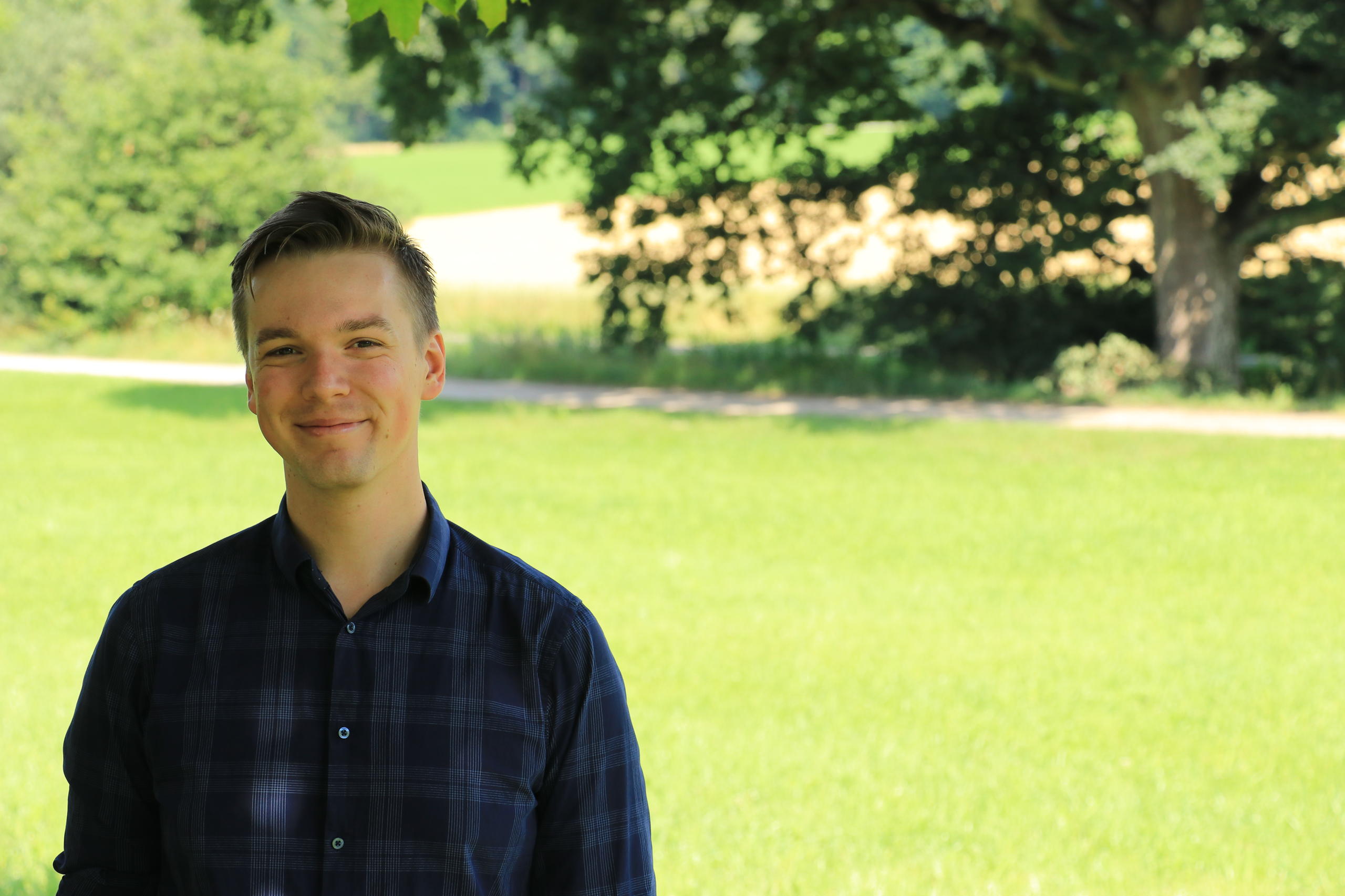A job in Zurich thanks to Swiss roots

For second generation Swiss citizens who live abroad, Switzerland often feels like a distant dream. Some say it is almost impossible for them to live, study and work in Switzerland. But Ben Tite from England, who found a job as a language teacher in Zurich, says: “It is not impossible.”
“As a child, I never thought it was possible,“ Tite says. He did not have a Swiss education, nor did he speak German. His mother is Swiss and his father English, and he couldn’t imagine the possibility of ever moving from Chichester in England to Switzerland.
And yet, 30-year-old Tite lives in Zurich where he has been teaching English conversation classes at the KV Zurich Business School since 2018. He is now fluent in German which he never learnt as a child. “Even though my mother spoke German to me, I always responded in English. As a teenager, I was embarrassed to talk in Swiss German.“
Teacher in Appenzell
Thanks to MovetiaExternal link, the National Agency for Exchange and Mobility in the education sector, Tite managed to live and work in Switzerland. After he completed his teacher training in England, he worked in South Korea and Japan for a year each before he discovered the agency. “All of a sudden, living in Switzerland no longer seemed impossible.“

The first step was to apply to the British CouncilExternal link, Movetia’s partner organisation in the UK, to have his documents forwarded to Movetia. “I imagined I would find a position somewhere in rural Switzerland, perhaps in a village in Appenzell.”
But the fact that he ended up in Zurich worked out in his favour. “It is probably easier to integrate in a city than in a village,” he says. The agency makes the final decision as to where the language teachers are placed. When Tite, who is a qualified teacher, arrived in Switzerland in 2018, he shared a house with others and made the choice to only speak Swiss German. His grandmother who lives in Pratteln in canton Basel Country is happy to be able to chat with her grandson in Swiss German during his regular visits.
Future in Switzerland
Tite’s initial plan was to stay for one year, but he fell in love with the country and has already stayed for two. His girlfriend, also a qualified teacher, will soon join him to start her job as a language assistant. The couple plans to move into their own flat and build a future in Switzerland. “My mother is excited about the idea that her future grandchildren may grow up in her home country.” She went to England as an au-pair girl when she was 17, fell in love and moved to England for good when she was 21.
Tite says he had always been proud of being Swiss and of having a Swiss passport, however, he had never really felt Swiss deep down inside. That is still the case, but much less so. “As a child, I read Swiss children’s books, but I missed out on having a typical Swiss childhood.” Many of his foreign students at the KV school in Zurich were born and bred in Switzerland and speak Swiss German fluently, however, they do not have a Swiss passport. “They are much more Swiss than I am.”
Time to explore the country
Tite cannot work as a language assistant for more than four years due to the regulations of the exchange programme, which motivates him to obtain a Swiss Teachers’ Diploma.
For now, he mainly teaches English conversation which does not demand much preparation and follow-up work. “I have a lot of spare time which enables me to discover my new home by hiking or biking.” And what’s more, his gross monthly salary of CHF3,500 ($3,700) is way more than what he would earn in Britain. “I almost feel rich,” he says.
Ben Tite hopes that his experience will motivate other young Swiss who grew up abroad to move to Switzerland. You don’t have to be a qualified teacher to join the exchange programme.
Students who have graduated from universities of applied arts and sciences or teacher training colleges, or even novice teachers, are able to teach their native language at Swiss secondary and vocational schools. In this way, they gain professional experience and learn the language and culture of their host country. For young Swiss people who live abroad, this programme is an opportunity to discover their country of origin and to better understand their own cultural backgrounds.

In compliance with the JTI standards
More: SWI swissinfo.ch certified by the Journalism Trust Initiative








Join the conversation!